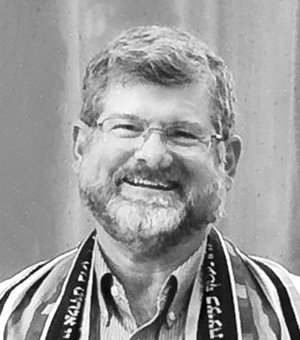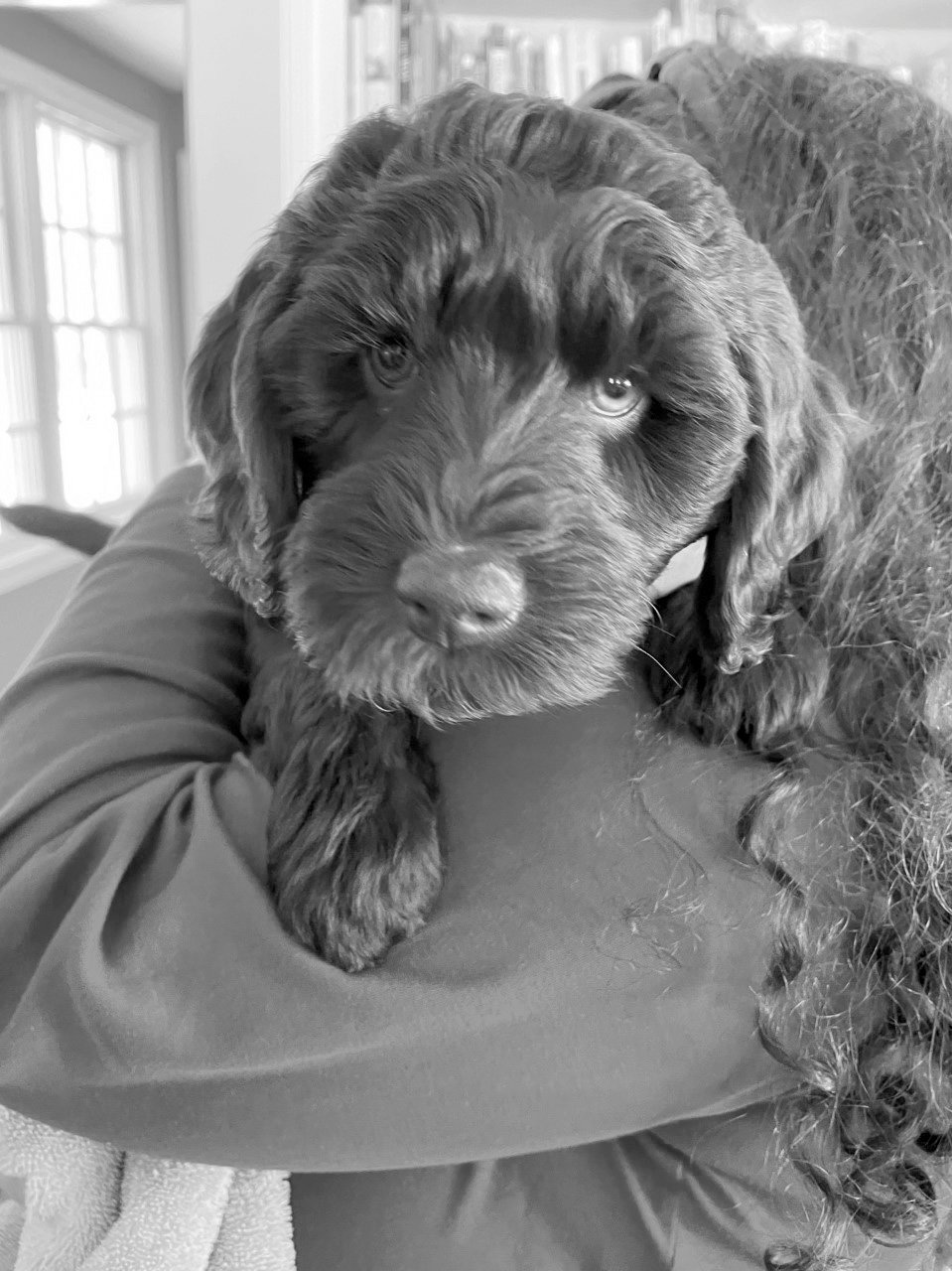A holy puppy
My wife, our two daughters and I acquired a new family member in January: we finally took the reentry plunge into dog ownership by welcoming Rilla, an Australian labradoodle, into our home.
The decision to get Rilla was not easy for us. Our previous dog, Ruby, died during the height of the pandemic, when she was 17 years old. Ruby’s death was very difficult for all of us – one more deprivation in a time of multiple losses.
So, it was unquestionably an act of faith that opened our hearts to receive Rilla.
Like most acts of faith, the reward has been unexpectedly greater than what we dared to expect.
Rilla is delightful. She is rambunctious and playful in ways that we had, somehow, forgotten that a puppy could be. She also requires a great deal more of our time and energy than we had remembered from Ruby’s puppy days, almost 20 years ago. But, we all agree that she is worth it for the love and joy she has brought us.
Here is something that is true about me: I am an enthusiastic, but not a sentimental, dog owner. I love the dogs that have been in my life, but I don’t pretend that they are anything other than pets. I bristle when people refer to Rilla as my “fur baby,” or use other phrases that are meant to equate our dog with our human family members.
Our family once used a veterinarian who liked to refer to me as “Dad,” as if I were the dog’s father. I reminded him several times that the dog and I were not actually related. He didn’t get it. I don’t use that veterinarian anymore.
Yet even I cannot deny that there is something special – even spiritual – about the relationship I have with Rilla, and that I have had it with the other dogs that have been in my life.
We human beings allow our pets into very intimate relationships with us. (For example, I let Rilla sleep in our bedroom with us.) And we do that because of the specialness, the sanctity, that surrounds the partnership that binds our two species to each other.
Human and canine (and human and feline, too, I suppose) have a way of caring and communicating with each other that is deeper than words, more profound than shared experiences. We just connect with each other and feel an innate closeness.
This week’s Torah portion is Kedoshim, and it includes the repeated exhortation, “You shall be holy, for I, Adonai your God, am holy” (Leviticus 19:2). The words always leave me wondering, what is it, exactly, that makes a person “holy”?
We can find clues to answer that question in the Torah portion itself. The portion gives us instruction on the need for employers to treat their workers justly, on being honest in business, on treating rich and poor alike, on not taking advantage of the ignorance of others, on not indulging in inappropriate sexuality, on respecting your parents and on respecting the elderly.
In my mind, all of these instructions point in a single direction that we can define as holy: the deep experience of caring for others and putting their needs and feelings ahead of our own.
Holiness is found not in seeing other people as utilities for gaining personal advantage, but in seeing them as beings with their own integrity, values, and capacity to love and be loved.
The thing that makes us holy is our ability to open our hearts to others and to recognize the holiness within them.
And that brings me back to Rilla. Like all dogs, Rilla has a talent for just accepting people as they are. Like all dogs, Rilla does not need to pretend that people are something they are not. As long as you do not hurt her, she will love you and lick you no matter what. We humans can take an important lesson from that trait.
The special, spiritual relationship I intuit between Rilla and the members of my family comes from the depth of honest compassion and caring between us. It is not a sentimental connection that is based on manufactured relationships or childishly exaggerated emotion. No, just the opposite. The thing that makes our relationship with Rilla so deeply satisfying is the way that we accept the truth about who she is and she (God bless her) accepts us for who we are.
The commandment “You shall be holy,” in this week’s Torah portion, seems so daunting. We wonder: How on earth can we be like God?
Upon reflection, though, we may realize that being holy is not about being perfect. It is about truly inhabiting the person you are and treating others as the human beings that they truly are.
It means to love people the way that Rilla loves us, without pretense or pretending, with not a word needed between us, but just with acceptance, honesty and caring.
RABBI JEFF GOLDWASSER is the spiritual leader of Temple Sinai, in Cranston.











